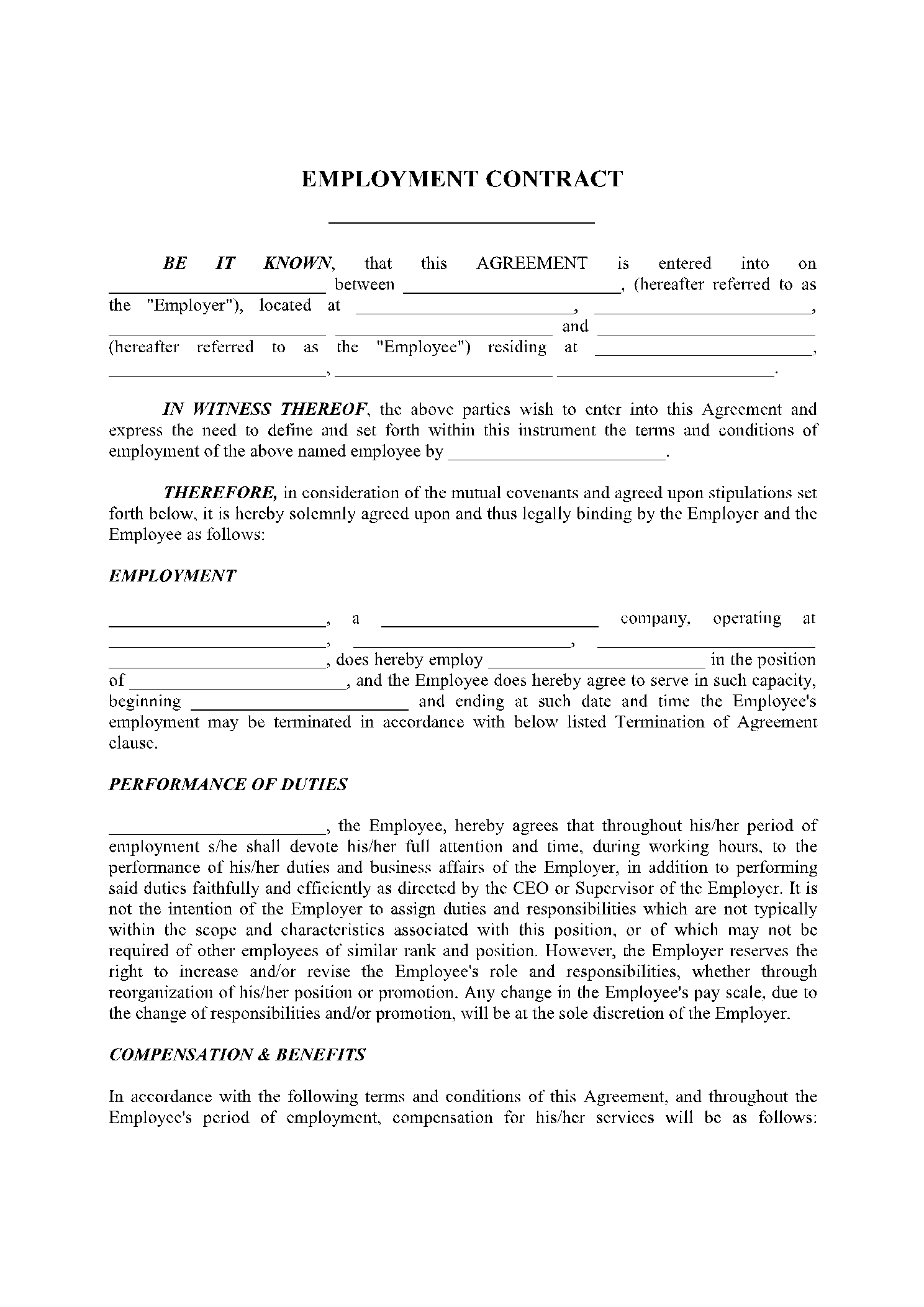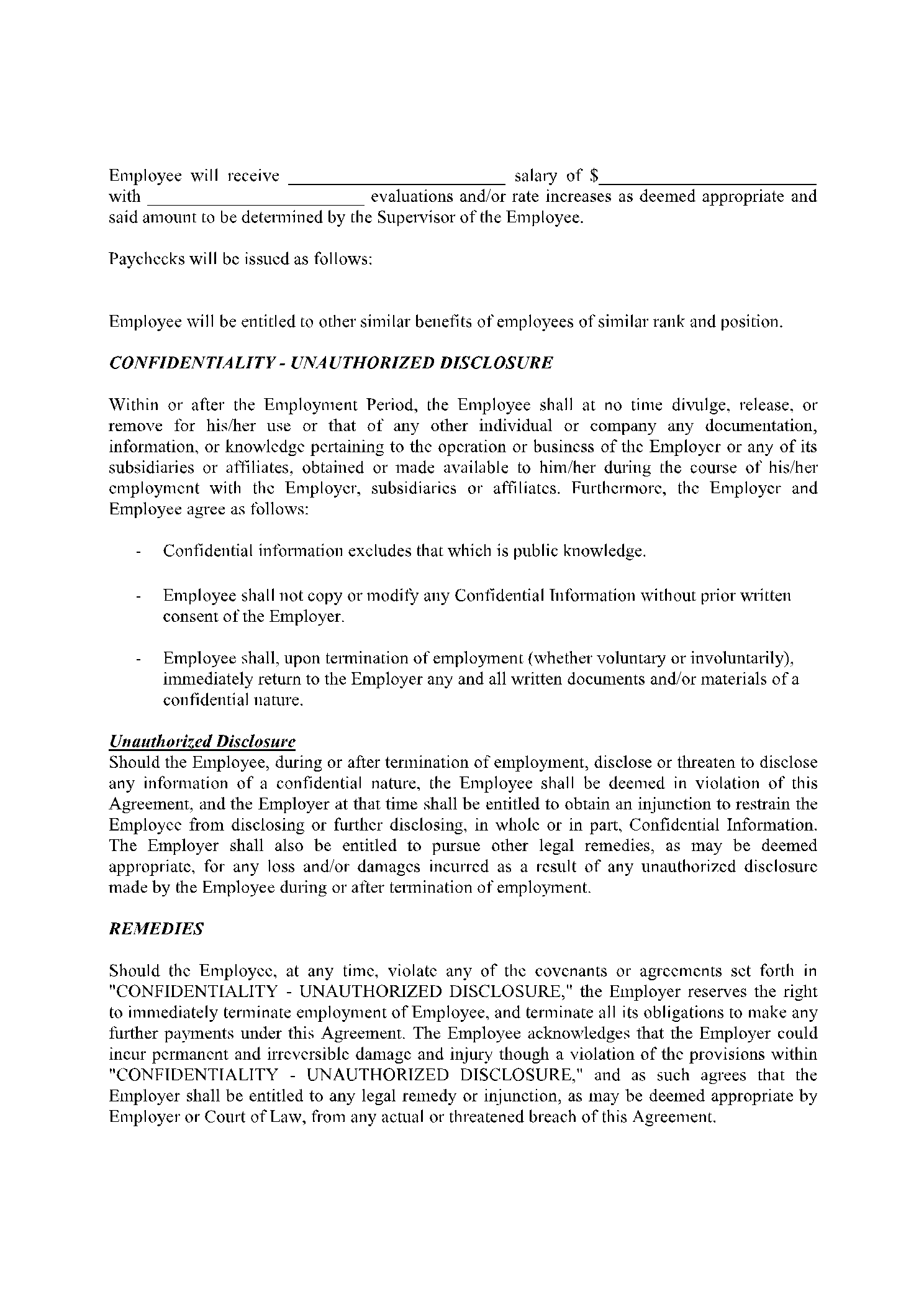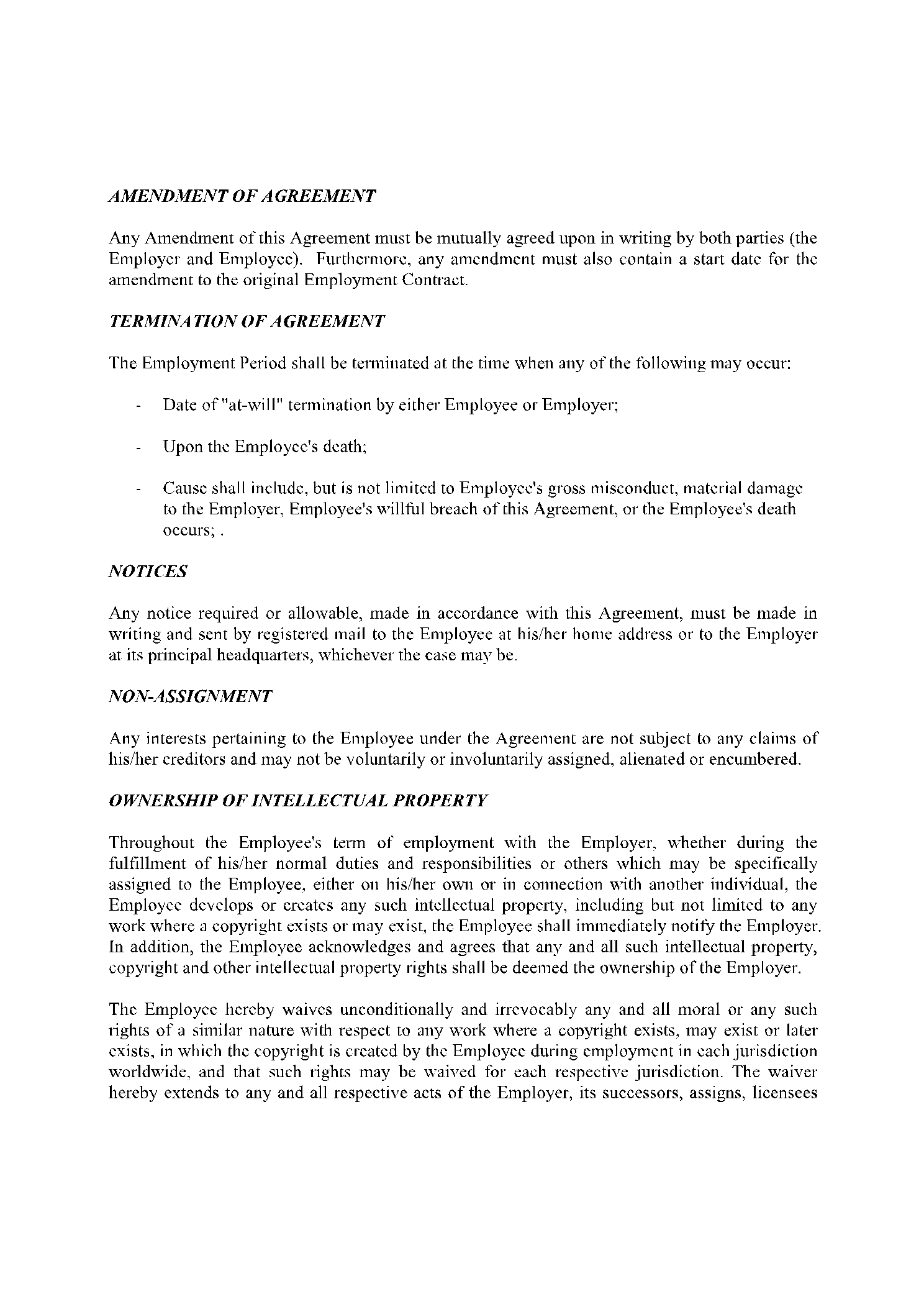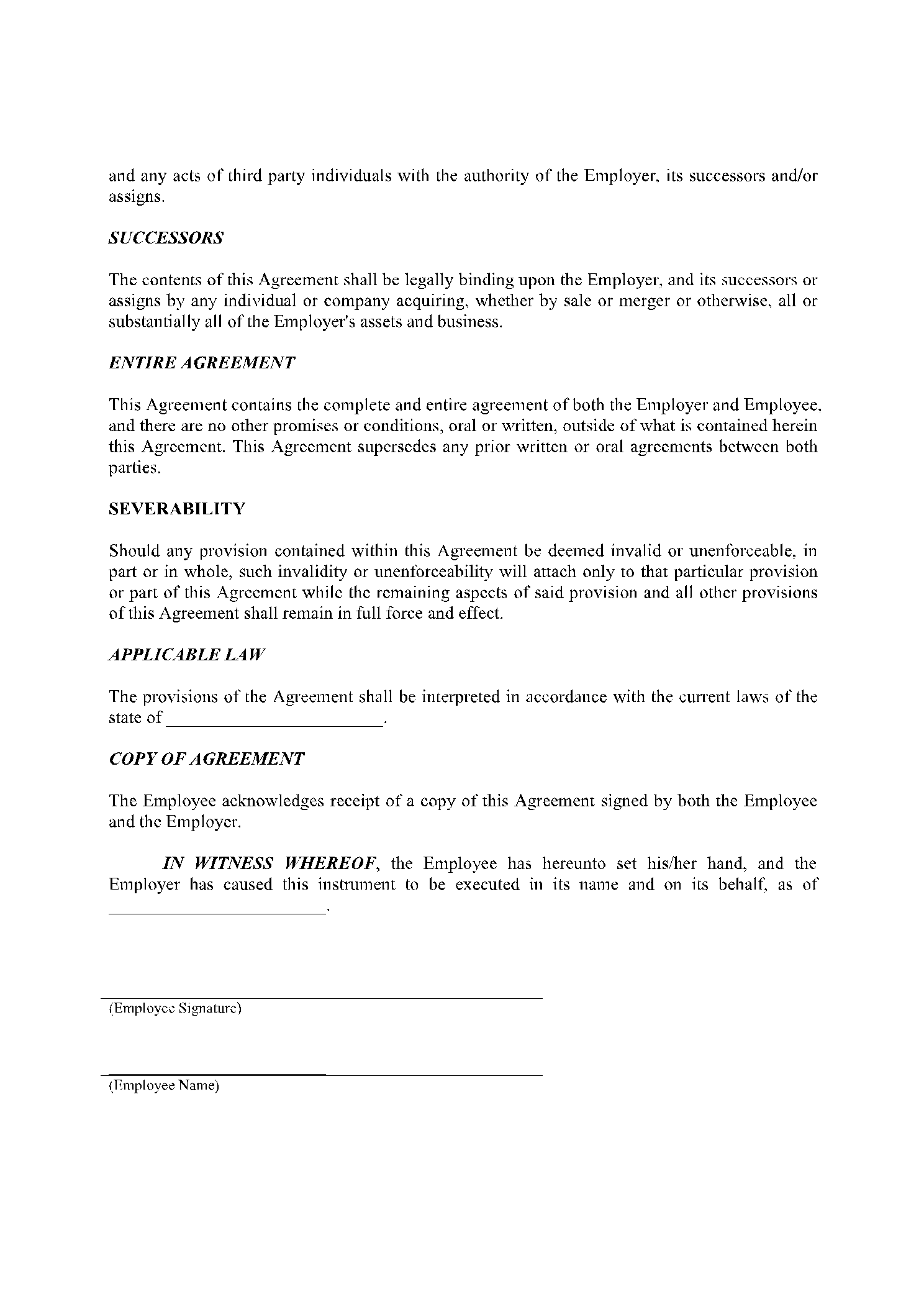An employment contract template is used to draft your own contract of employment with the employer or the employee. Below you are going to find everything needed to know about employment contract and have a clearer idea about when you are going to need an employment contract for your business and how to create a proper one.
Also, you will find an expert-drafted employment contract template available for free download!
Part 1: What is an Employment Contract?
Also known as Employment Agreement, Employee Contract, Job Contract, or Contract of Employment, an Employment Contract is a legally enforceable document formed between an employer and an individual employee, which defines all terms and conditions of the employment relationship.
It is signed when a new employee comes on board in the job position provided by the employer. Unlike normal employee forms, an employment contract shall detail the obligations, duties as well as responsibilities of the employee towards the employing party, and vice versa. Meanwhile it may serve as legal protections for the benefits and rights of both parties.
Once signed by both parties, the employment contract shall remain active throughout the tenure of the signing employee, unless otherwise agreed.
The employed party is suggested to give the employment contract a careful read before signing it.
Part 2: Who needs an Employment Contract?
Every employer needs an employment contract regardless of the sector and size of his or her company.
An employment contract may prove legally useful to the employer in scenarios that include but are not limited to:
- When it’s difficult for the employer to find replacements for the employed professional with unique skills and talents.
- When the employed party has or will have knowledge of or access to confidential business information of the company.
- When there is concern regarding business competition if the employed party ever quits.
Its legal necessity is also built on the fact that by laying out working standards, expectations, as well as employment payments, such an employment contract may help set the employment relationship well on track, leaving no room for uncertainty, unclarity and misunderstanding.
Part 3: Types of Employment Contracts
There are mainly 5 types of employment contracts depending on the employer, the job role, and the work demand.
Full-time Employment Contracts:
Full-time employment contracts are the most frequently used ones by employers. Such documents detail the working hours of the employees and how they will be paid (salary or hourly). Furthermore, other important aspects are also included, such as the position of the employee within the company and his or her holiday entitlement.
The complexity of a full-time employment contract is often related to the seniority of the employed party. Some companies may add non-compete clauses and confidentiality clauses in their employment contracts for senior employees to protect the interests of the company.
Part-time Employment Contract:
Similar to a full-time employment contract in many aspects, a part-time employment contract usually requires fewer contracted working hours, though a part-time employee may still retain the option to work overtime when desired.
Holiday entitlement and other perks are often overlooked under a part-time employment contract. However, it is necessary to state these conditions clearly in the part-time employment contract and meet the statutory requirements
Zero Hours Contract:
A zero hours contract is a contract where the employer does not have to provide regular work for the employee, but the employee has to be on call in case he or she is needed to work.
It modifies the conventional employment contracts by nullifying the obligation of the employer of the provision of work.
To create and execute a zero hours contract requires great care. There should be prior arrangements made with the employee so that the employee fully understands what they are getting into.
Casual Worker Contract:
Under a casual worker contract, the Employer is not obliged to provide work to an individual employee, while the employee is also not required to accept the work when offered.
A casual worker is not firmly committed to all the work assigned by the employer. He or she may enjoy a higher pay rate and end employment without notice unless required, yet with fewer benefits to gain from the employer, compared to full-time employees.
Generally speaking, a casual worker contract is created for workers seeking temporary employment rather than a permanent one.
Annualised Hours Contract:
Under an annualised hours contract, an employee's working time is expressed as a total number of hours to be worked during the course of the year. With an annualised hours contract, employers may assign work based on demands, in which cases they don’t have to pay overtime, or recruit temporary staff.
This type of employment contract benefits employees by offering certain flexibility with periods of non-working for them, making it possible for them to pursue personal interests and hobbies.
All the benefits of the full-time employees are applicable to employees working under annualised hours contract as well.
Part 4: What does an Employment Contract cover?
An employment contract describes the obligations of the employer as well as the employee. In general, it contains the following components:
Employee Salary:
The employment contract shall state the salary, wage, or commission of the employee, which is generally agreed upon between the employee and the employer beforehand.
Schedule:
The employment contract shall include the days and hours the employee is expected to work.
Employment Duration:
The employment contract shall stipulate the length of the time the employee is expected to work for the company, as agreed by both parties beforehand.
Generally, the contract is on an ongoing basis so there is no specific term stated. However, for fixed term contracts, the employment duration should be added within.
Employee Responsibilities:
The employment contract shall detail the responsibilities expected of an employee during the employment tenure at the company.
Benefits:
All promised benefits to the signing employee by the employing party shall be specified in the employment agreement, such as insurance and vacation. Furthermore, it shall be guaranteed that benefits mentioned in the agreement comply with the minimum requirements set by laws and regulations of the region where the company operates.
Ownership of Work:
The employment contract may add that the work produced by the employee within the duration of the employment contract for the company shall be owned by the company. This proves essential for businesses operating in content creation, arts, etc.
There can be many more added clauses in the contract agreement, based on the type of employment and the requirements of the employer.
Part 5: Why An Employment Contract Is Necessary?
A proper employment contract is necessary in the way it provides legal proof in protecting the rights and interests of both parties.
By laying out the responsibilities, expectations and promised benefits of both parties in written form, an employment contract ensures job securities for the employee, as well as confidential info security on the employer’s side.
An employment contract also works in favor of the employee by providing necessary information pertaining to job description, duties, salary and benefits.
Meanwhile such contract prove beneficial to the employer as well if the employee fails to comply with his or her responsibilities, under which circumstances, the employer is allowed to dismiss the employee.
An employment agreement also makes sure that the competitors of a business cannot exploit the vulnerabilities of a company by hiring their employees. This is achieved through non-compete and confidentiality clauses.
Any party may use the employment agreement as legal proof in case there is any violation or breach of the agreement from the other party.
Endnotes
To form a legally binding employment contract, any clause included within should be properly written.
Can’t wait to draft your own employment contract? Download a >free attorney-drafted template at CocoSign! CocoSign has all types of contract templates in store for you to discover.




